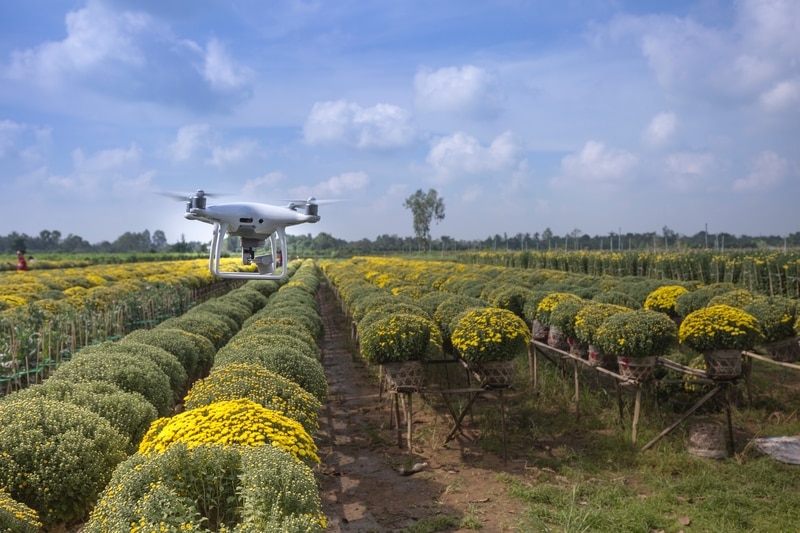
Hokkaido, the northernmost of Japan’s main islands, is known for breath-taking scenery, onsen hot springs and ski areas. However, it is also known for its advanced agricultural technology and ecotourism.
Agriculture plays a large role in Hokkaido’s economy, with a quarter of Japan’s arable land located on the island.
In terms of production, the island ranks first in. It produces a range of agricultural products, including wheat, soybeans, potatoes, sugar beets, onions, pumpkins, corn, raw milk, beef and many other products, including more exotic crops.
Thailand’s Deputy Prime Minister stated that the Thai government will be applying Hokkaido’s development of technology for the farm and tourism sectors to upgrade Thailand’s community-based tourism and tackle poverty among farmers.
The leader recently led officials from the Industry Ministry, the Board of Investment (BoI), the Tourism Authority of Thailand (TAT) and the Bank for Agriculture and Agricultural Cooperatives (BAAC) to visit Japan in early November.
He noted that Thailand should learn to use more advanced technology in the agriculture sector because the country has become an ageing society and is facing a shortage of young workers in the sector.
The state-owned BAAC has been tasked with seeking out solutions to support smart farmers and offer soft loans to enable them to apply smart machinery in farming such as drones, which help cut costs and provide better health for workers in the farm sector.
Since acquisition costs for smart machinery in the farm sector are relatively high, the government is working to design proper solutions to entice more machine manufacturers to lower their prices.
The BoI has been assigned to devise investment packages in the agriculture segment that can attract more investment in machinery manufacturing.
The Secretary-General of the BoI stated that tax perks are now available to the farming industry from upstream to downstream, covering agricultural product processing, organic fertiliser production, and breeding development both for plants and animals.
The BoI revised tax privileges for the agriculture sector in September, offering a corporate income tax exemption for 5-8 years to smart farming businesses such as software design and data analysis for management.
Existing entrepreneurs in the farm sector who want to upgrade their products to international standards such as food safety ISO 22000 are also eligible for a corporate income tax exemption for three years.
The BoI reported applications for investment in agriculture and farm product processing amounted to 49 projects worth a combined 9.5 billion baht in the first 10 months this year.
The TAT will now be joining hands with the BAAC to promote agriculture-based and community tourism, similar to Hokkaido, creating a linkage between the farm and tourism sectors.
Thailand can apply Hokkaido’s farm and tourism development to upgrade community tourism and generate revenue in the agriculture sector.
Hokkaido has successfully created a linkage between tourism and the farm sector, attracting 235,000 Thai visitors in 2018.
The Managing Director of Hokkaido-based Smart Agriculture Division stated that said Japan needs speedy restructuring in the farm sector and has applied technology to increase productivity in order to supplement the smaller workforce of young farmers. In Japan’s ageing society it is essential for the country to accelerate using high technology.
OpenGov Asia reported earlier that the Digital Economy and Society (DES) Ministry and the Thai branch of an American multinational technology company would establish an artificial intelligence (AI) lab to cater to the farming sector and the smart city project.
The project lets users link with the firm’s research lab, where they can access intellectual properties from around the world that can be shared. The nation’s experts believe that smart agriculture is the way forward, and it will be aided by AI.
OpenGov Academy
In line with efforts to encourage AI technology adoption, OpenGov has launched its OpenGov Academy, in collaboration with AlphaZetta.
The OpenGov Academy facilitates and promotes AI masterclasses, workshops and customised courses that are conducted by AlphaZetta and supported by OpenGov.
This academy will feature masterclasses across various levels: C-suite, management, business, and, expert.
The classes have been created to impart understanding – taught in an intuitive, accessible way, keeping formulae and mathematics to a bare minimum and taking an innate, visual approach.
Data literacy, AI and data science, and strategic decision making with data are some of the classes offered by the academy.
For more information, visit: OpenGov Academy
















